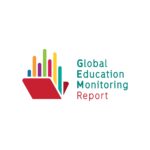2-4 PM, Friends House, 173 – 177 Euston Road, London, NW1 2BJ
About the 2020 Global Education Monitoring Report
Following GEM reports on education and the other SDGs (2016), accountability (2017/8), and migration and displacement (2019), the 2020 GEM Report will focus on inclusion.
In line with its mandate, the 2020 GEM Report will assess progress towards Sustainable Development Goal 4 (SDG 4) on education and its ten targets, as well as other related education targets in the SDG agenda.
Echoing the overall orientation in the SDGs to “leave no one behind”, the 2020 Report will take an in-depth look at inclusion and education. Inclusion is central in the formulation of SDG 4 but is also taken up in other targets in the goal, notably targets 4.5 on gender equality and 4.a on learning environments. Responding to this emphasis, the 2020 GEM Report will analyse policies the world over and present evidence on the different elements of education systems that can support inclusion, such as laws and policies, governance and finance, curricular and learning materials, teachers, school infrastructure, school selection and parental and community views.
The Report will focus on the barriers faced by all learners, especially those with overlapping characteristics that make them particularly vulnerable to exclusion. It will also take an in-depth look at people with disabilities, a group whose particular challenges gave rise to the inclusion debate. The Report will look at a range of indicators measuring inclusion in education using both quantitative and qualitative data. The analysis will be based on geographically balanced evidence, and will pay special attention to contexts where disadvantaged children might be particularly at risk of exclusion from education, such as in situations of conflict.
Further detail on the conceptual framework and proposed structure of the 2020 Report is provided in the Concept Note.
As with every year, the GEM Report team is convening a series of consultations with researchers, academics, governments, non-governmental organizations, aid donors, teachers and youth.
The purpose of the consultation is to:
- Invite participants to provide substantive feed back to the proposed lines of research;
- Recommend interesting examples of policies and practices from around the world that illustrate what inclusive education policies look like in different countries and how inclusive education is implemented in schools and classrooms;
- Recommend potential areas of new research drawing on already established or previously unexplored sources of quantitative and qualitative data.
Consultation Format (120 min): Initial short inputs from the GEM Report team will guide a plenary discussion (30 min). Introducing the theme of inclusion the presenter will briefly discuss the evolution of inclusion in education, introduce the Report’s definition of inclusive education, and guide participants through the proposed framework for the Report.
The remainder of the session will address the following questions in plenary:
- What are the key policy solutions for each of the elements of inclusive education to ensure the achievement of SDG 4?
- How can common obstacles to the implementation of such inclusive education policies be anticipated and overcome?
- What arrangements are needed to coordinate among government sectors, tiers of government and with other stakeholders to overcome overlapping dimensions of exclusion?
- How do education systems monitor exclusion in education (with regard both to individual education attainment or success and to systemic factors) and how can current practices be improved? To what extent systems monitor exclusion from the learning process for learners who are in schools?
- What channels of financing are used for inclusive education policies around the world? How are they monitored and how do they affect local practice?
Participants are asked to familiarize themselves with the Concept note for the 2020 Global Education
Monitoring Report on inclusion prior to the consultation.
About the GEM Report
The Global Education Monitoring Report (GEM Report) is an editorially independent, authoritative, and evidence-based annual report by UNESCO. Its core mandate is to monitor progress towards the education targets in the new Sustainable Development Goals (SDGs) framework.
Facilitator: Mr Manos Antoninis, Director Global Education Monitoring Report
Contact: Kate Linkins, Partnerships and Outreach, Global Education Monitoring Report, k.linkins@unesco.org, +44 (0)7789633343

